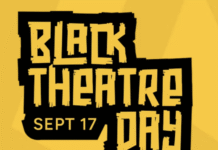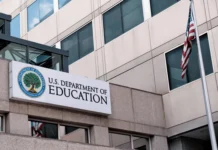
The Six Triple Eight tells the important yet often overlooked story of the 6888th Central Postal Directory Battalion, an all-Black, all-woman unit in World War II. The film chronicles the battalion’s efforts to clear a massive backlog of undelivered mail meant for U.S. troops, a task that was both vital and challenging. In a show-stopping speech atop a mountain of mail, Major Charity Adams, played fiercely by Kerry Washington, explains the importance of mail during wartime and its relationship to soldier morale. Adams, who is continuously denied promotions despite her impeccable professional performance, leads 855 Black women through 17 million pieces of mail in an abandoned, cold and drafty school rife with “vermin” to raise the morale of soldiers and bring closure to families who haven’t heard from loved ones in nearly a year.
The film features an all-star cast including Susan Sarandon as Eleanor Roosevelt, Sam Waterston as President Franklin Delano Roosevelt, Oprah Winfrey as Mary McLeod Bethune and Ebony Obsidian (Sistas, If Beale Street Could Talk)) who shows her acting chops by holding her own playing Lena, a bereaved private, opposite Washington.
Lena is a highly sensitive and intelligent young woman who is distraught over the death of her Jewish “boyfriend,” Abram David (Gregg Sulkin), who is killed in the war. Instead of attending college, Lena enlists in the army to “fight Hitler” En route to basic training in Georgia, Lena is joined with a group of women in the segregated battalion, all of whom are running away from a traumatic past and running towards a brighter future. What emerges is a strong sisterhood, that bonds the women whether in their barracks or crossing the big pond, which is one of the highlights of the film.
The Six Triple Eight has all of the tropes of a film set during the 1940s, including de facto segregation here and abroad, the mistreatment of Black women in and out of the service by any and everybody, aggressive white men using the N-word with the hard “R,” and older Black women whose hearts are free, but minds are shackled to fear that living in segregation and being subjected to impromptu violence, ridicule, jail or scorn brings to bear.
While the film elevates the untold story of the dynamic, pioneering and committed Black servicewomen of the Six Triple Eight, the narrative falls prey to Perry’s signature style –heavy handed dialogue, uneven performances and a redundant script that keeps beating viewers over the head with what many already know as opposed to what we need to know. For example, a short montage of the women working with the mail is usurped by abusive treatment from white, male leaders. A film like this would benefit more from seeing and understanding the dynamism, intelligence and dedication it took for these women to develop and implement a strategy to get this volume of mail to the soldiers and their families.
In another scene the 6888 soldiers yell out their prior professions which would prove helpful to keeping their assignment when they come under attack again from the white military men. Visually seeing the Black women demonstrate their talents would be far more satisfying than hearing them ticked off like a grocery list, which undermines the significance of their work and preparation for war as Black women during this harrowing time in history. The lack of emphasis on their skills and capabilities diminishes the overall impact of their story, leaving viewers wanting more depth and insight into their achievements.
While the film highlights the struggles these women faced against institutional racism and sexism, it ultimately falls short in delivering a nuanced portrayal of their significant contributions to the war effort. This is a must-see film because of the subject matter and strong performances by Washington and Obsidian, but the execution of the story makes it a difficult film to get through.
Tyler Perry is beloved as a filmmaker because he sometimes makes films that people need to see at a particular moment in time (For Colored Girls), resuscitates or helps to keep the careers of super accomplished actors alive (Debi Morgan, Alfre Woodward, Cicely Tyson) and gives young, talented actors like Obsidian, Taylor Polidore Williams (Beauty in Black, Snowfall, All-American HBCU) and Crystal Renee Hayslett (Zatima) a chance to play a lead role when mainstream Hollywood is taking too long. One thing Perry hasn’t done is extend that generosity of spirit to the same extent to the writing and directing categories. Debbie Allen choreographed the march scene for Six Triple Eight. What might this film have been had she directed the film?
This much anticipated film is a love letter to Black servicewomen and a movie that audiences need to see now, that would benefit immensely from stronger writing and direction. Six Triple Eight is a commendable effort to elevate an untold story, but it ultimately leaves viewers craving a more nuanced exploration of the remarkable women at its center.
Six Triple Eight is now playing on Netflix.
This review was written by media critic Nsenga K. Burton, Ph.D., editor-at-large for NNPA/Black Press USA and editor-in-chief of The Burton Wire. Follow her on IG@TheBurtonWire.








